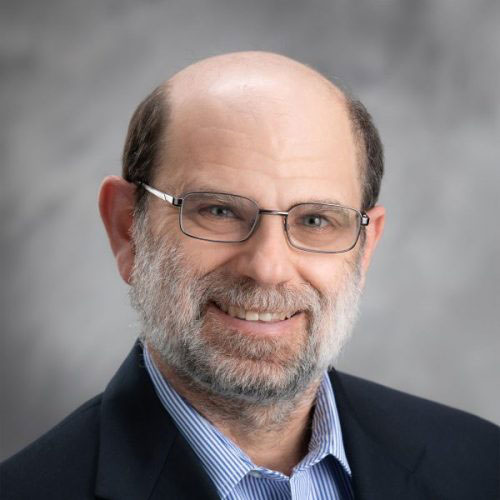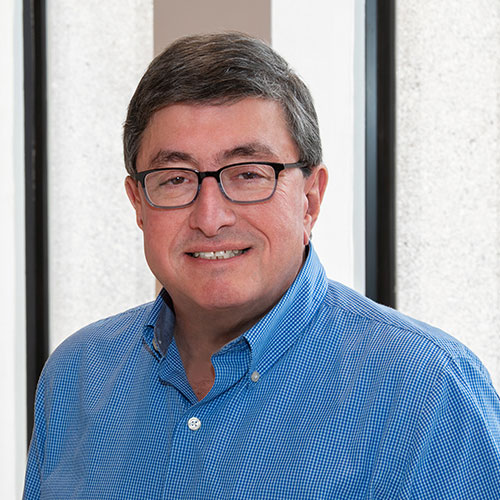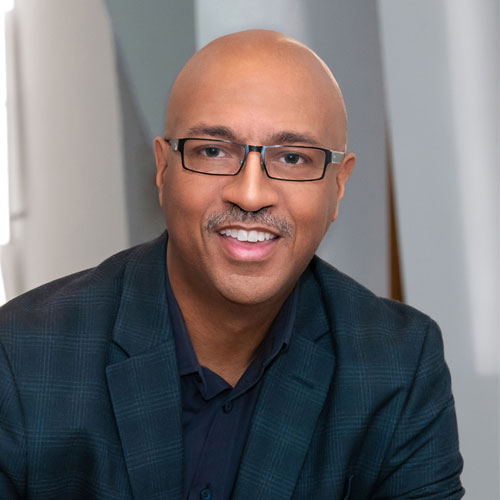Faculty members are at the heart of Case Western Reserve University’s mission to educate scholars and conduct research that advances society—and many of them choose to spend significant portions of their academic lives at our institution.
The Daily reached out to faculty members who announced their retirements after more than 20 years of service to the university in order to share the impacts they’ve made through teaching, mentorship, research and administrative accomplishments with the university community.
Learn more about those who told us their stories.
Steven Izen

College of Arts and Sciences
40 years
At the end of each semester since 1983, Steven Izen took a group picture of the students in his classes. That tradition continued for 40 years, with the final photo taken in December when Izen retired from his position as a professor in the Department of Mathematics, Applied Mathematics and Statistics at the College of Arts and Sciences.
The pictures capture one of Izen’s favorite parts of teaching at the collegiate level—working with students—but can’t illustrate the academic impact he’s made beyond the classroom. Izen’s research mathematics of imaging was largely applied to tomography—the reconstruction of images from projections—which is used in CT scanners in both medical and industrial settings.
The NASA Glenn Research Center called upon Izen for his expertise when developing algorithms to assist in flow diagnostics inside wind tunnels to better understand sampling density requirements needed to achieve a desired reconstruction resolution in CT.
His work with NASA is among his most notable accomplishments, according to Izen, but it’s just one of many. Having become a faculty member at CWRU at just 24 years old, Izen had the opportunity to play a role in the academic paths of countless students and prides himself on the impact he made. One such student even changed his major to math after taking a course with Izen. That student is now a faculty member at UCLA.
“I treasure the friendships and interactions with my colleagues, staff, and students. I will miss the daily interactions,” Izen said.
Izen’s dedication to his students is perhaps most evident in his daily commute to campus. During his tenure, Izen rarely missed a day cycling to campus from his Shaker Heights home—about a five-mile one-way trip. He recalls one day in particular as the most memorable: Jan. 19, 1994—when Cleveland recorded its lowest-ever temperature of -20 degrees.
Ken Singer

College of Arts and Sciences
34 years
For Ken Singer, entrepreneurship comes naturally. As the Ambrose Swasey Professor of Physics in the Department of Physics at the College of Arts and Sciences, he leveraged that drive to create Folio Photonics, a spinoff that commercializes optical data storage products to address sustainability and energy problems in data centers.
The basis for the company comes out of Singer’s work in the Center for Layered Polymer Systems (CLiPS), a National Science Foundation Science and Technology Center.
As a researcher, Singer’s work has focused on the electronic and optical properties of organic materials such as polymers and liquid crystals, including how these materials can be used in renewable energy, communication and optical data storage. His efforts have lent themselves to other ventures as well, including his founding of the Materials for Opto/electronic Research and Education (MORE) Center and the university’s engineering physics programs. Singer also co-founded the Great Lakes Energy Institute and the Institute for Advanced Materials.
But for as much as he enjoyed advancing research, a key part of Singer’s role at CWRU centered on supporting other people. More than 110 individuals from postdoctoral scholars to K-12 students have benefited from Singer’s mentorship.
“I will miss the interactions and relationships I have formed with my colleagues, many of whom I have collaborated with over the years,” Singer said. “As my field is inherently interdisciplinary, I have developed collaborative and personal relationships in the sciences and engineering and more recently with my colleagues in the art history and art department on our joint project on machine learning applied to cultural heritage preservation.”
Singer was recognized for his scholarly contributions in 2020 with the university’s Faculty Distinguished Research Award.
Melvin Smith

Weatherhead School of Management
22 years
Melvin Smith has held one primary focus over the course of his career: working to improve the relationship between leaders and their employees through emotional intelligence. After more than 15 years at companies including IBM and Pepsi, Smith came to CWRU in 2002 to apply his lessons learned in an academic setting.
He eventually became a professor of organizational behavior and faculty director of Executive Education at Weatherhead School of Management. In these roles, Smith developed and directed programs such as Leadership Deep Dive and the Executive Leadership Development Experience, designed for Black leaders aspiring to reach the C-Suite.
His award-winning book Helping People Change: Coaching with Compassion for Lifelong Learning and Growth (Harvard Business Review Press, 2019), published alongside colleagues Richard Boyatzis and Ellen Van Oosten, is yet another example of his impact
Smith’s influence can be seen beyond campus, with his efforts reaching around the world to such places as New Zealand, Scotland, Dubai and Trinidad. Several organizations rely upon his expertise, as evidenced by Smith’s roles on boards of The Edge Sports and Arts Academy, the Will-Burt Company, International Coaching Federation Thought Leadership Institute and BetterUp Coaching.
“In my time at CWRU, I have been able to work with wonderful colleagues, and I have had the opportunity to influence countless amazing students and program participants here in the U.S. and around the world,” Smith said.

